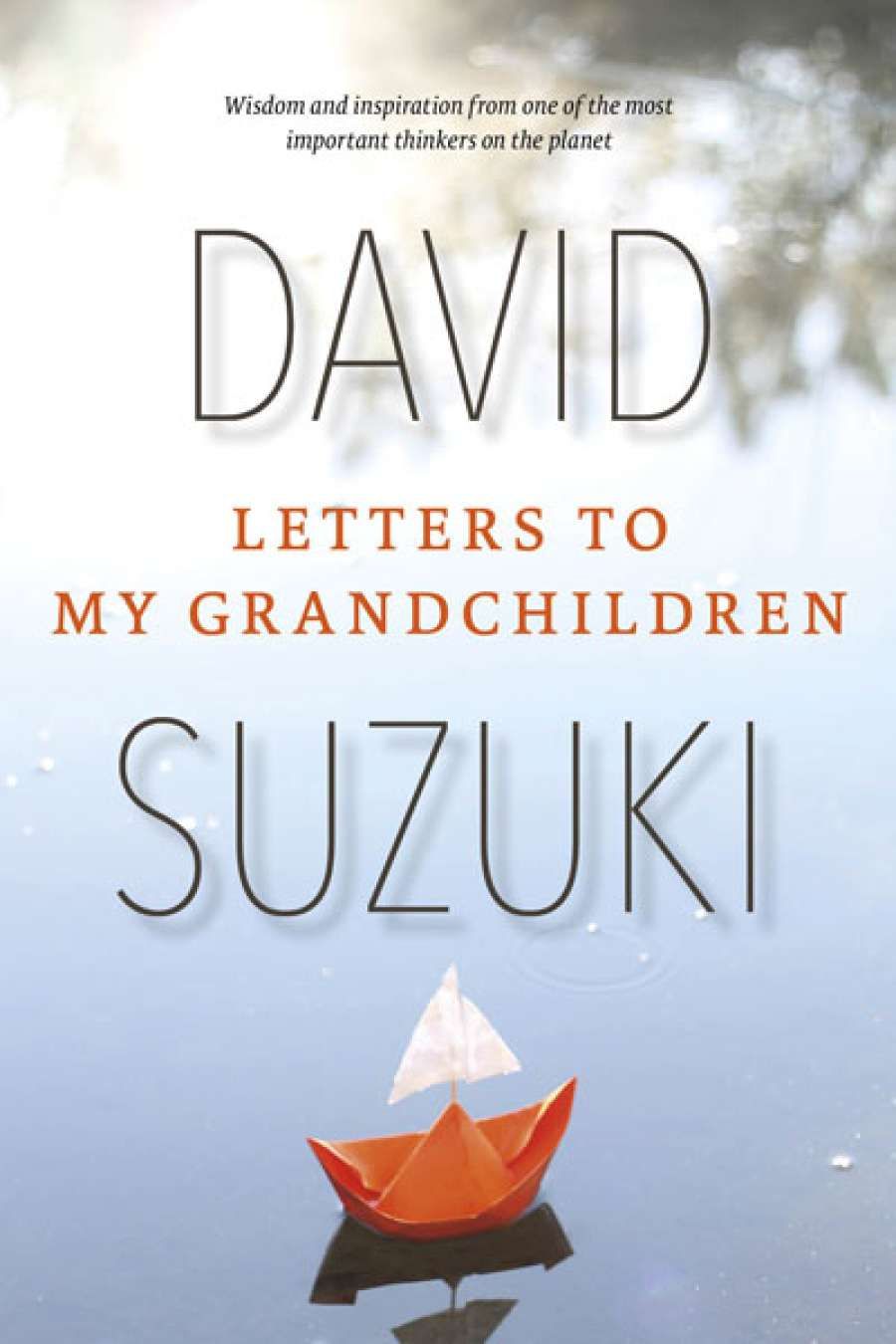
- Free Article: No
- Contents Category: Environmental Studies
- Custom Article Title: Ian Lowe reviews 'Letters to my Grandchildren' by David Suzuki
- Book 1 Title: Letters to my grandchildren
- Book 1 Biblio: NewSouth, $29.99 pb, 248 pp, 9781742234472
Although he studied in the United States, Suzuki made a conscious decision to return to Canada because he valued the institutions that make it a more civilised country: Medicare, a national film board, the Canadian Broadcasting Corporation, the diversity provided by the French province of Quebec, and the economic system by which affluent provinces shared wealth with those less fortunate. This reminds me of what makes Australia a great place to live as well as warning of what we are losing as successive governments erode important institutions like Medibank, the ABC and SBS, our literature and film, our formerly progressive taxation system, and our capacity to make independent decisions in our national interest. Suzuki writes persuasively about the costs of globalisation and the recent mania for so-called free trade agreements, often effectively licences for international corporations to evade the usual responsibilities of public companies.
Suzuki takes a strong line on the need to scale back consumption to slow the loss of biological diversity. As a scientist, he is acutely aware of the pressures on the natural world that arise directly or indirectly from the increasing demands of the human population. We are losing species at a rate comparable with the great extinction episodes in the Earth’s history. Unlike those previous periods of catastrophic loss, we know the cause and are able to rectify the problem, at least in principle. In practice, short-term economics, greed, and political opportunism continue to block the road to a sustainable future.
‘Suzuki takes a strong line on the need to scale back consumption to slow the loss of biological diversity’
Suzuki warns us to assess the long-term consequences of new technology and urges ‘a greater sense of humility in the face of our ignorance’. Although we know far more than any previous generation about the natural systems of the world and our impacts on them, science remains ‘islands of understanding in an endless sea of mystery’, as distinguished biologist David Ehrenfeld said. Any number of examples, such as DDT, CFCs and nuclear power, demonstrate that we have often learned in retrospect about the problems arising from using new technology. In all those cases, commercial interests and enthusiastic scientists saw the benefits of the discoveries but failed to recognise the risks.
 David Suzuki
David Suzuki
The most fundamental problem Suzuki tackles is growth. He understands that unlimited growth is impossible in a finite system. Thoughtful politicians recognise that recent growth has expanded inequality without solving the problems of poverty and unemployment, but see no alternative to the present economic system and the obsession with further growth. It is possible, as Suzuki says, ‘with greater humility, with understanding … we can relearn to value nature and rediscover our place within this world’. But that is an aspiration, not a program of action. The fundamental changes needed for survival will not come from leaders hobbled by economic ideology; if they happen, they will start at the community level.
While I found the book full of wise advice and perceptive analysis, some of the North American jargon did jar. I also wondered about the chapters addressed personally to each of Suzuki’s six grandchildren. This not only draws attention to his own contribution to the expanding population, but also exposes his particular hopes and aspirations for them as unique individuals. I would feel uncomfortable if my own grandparents’ wise advice to me were on the public record. I wonder whether these young people will appreciate their Grandpa’s comments being in print. However, other grandparents may want to follow Suzuki’s urging to take more responsibility for their descendants’ future. This book might encourage them to find their voice.


Comments powered by CComment